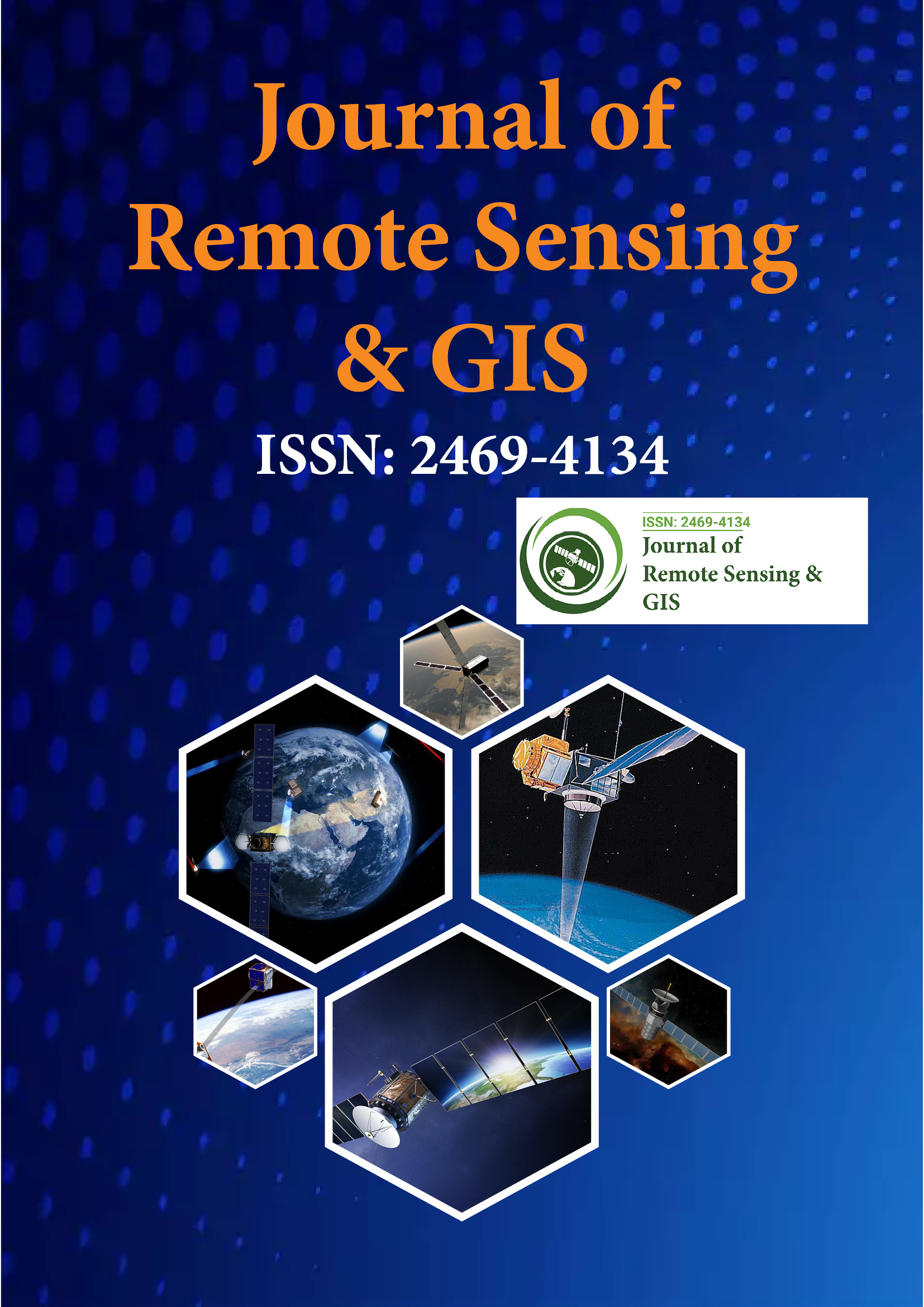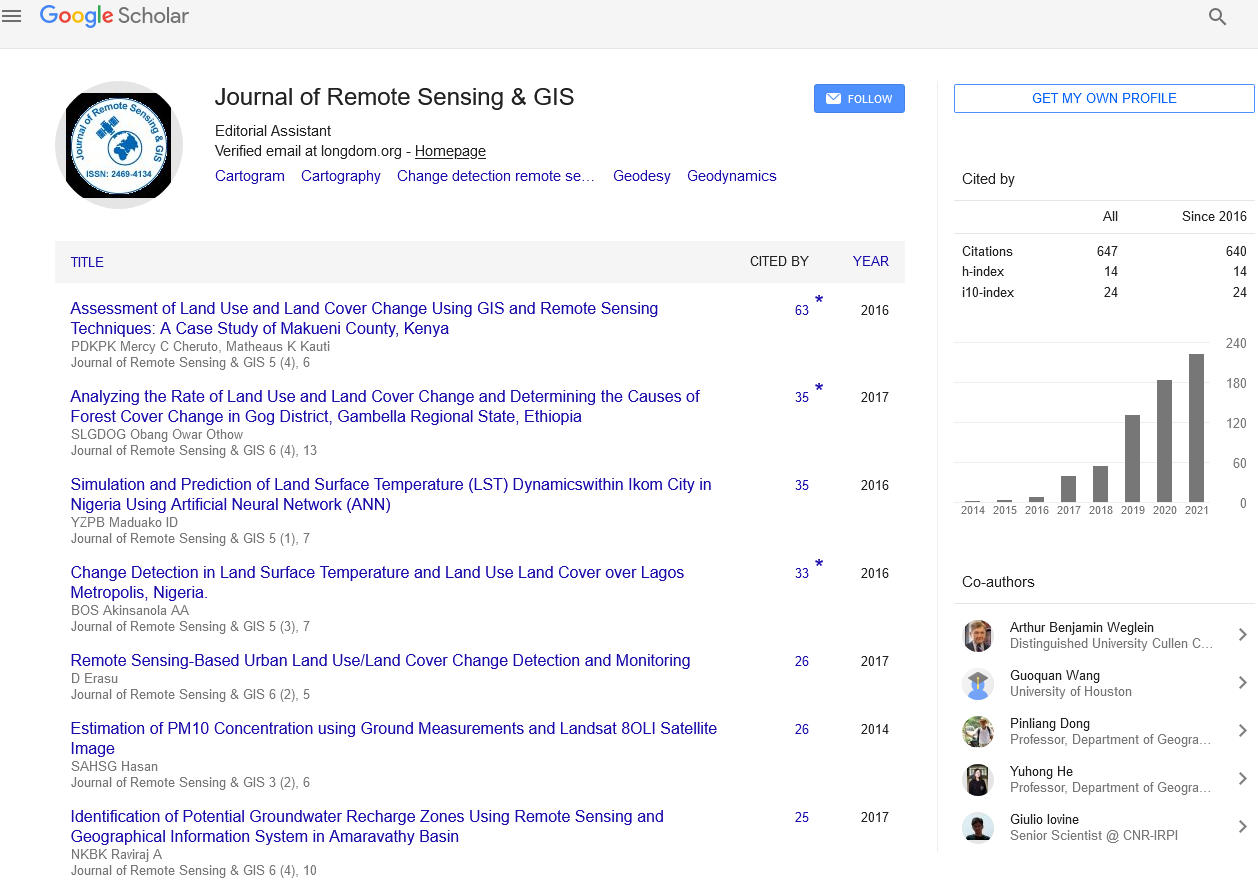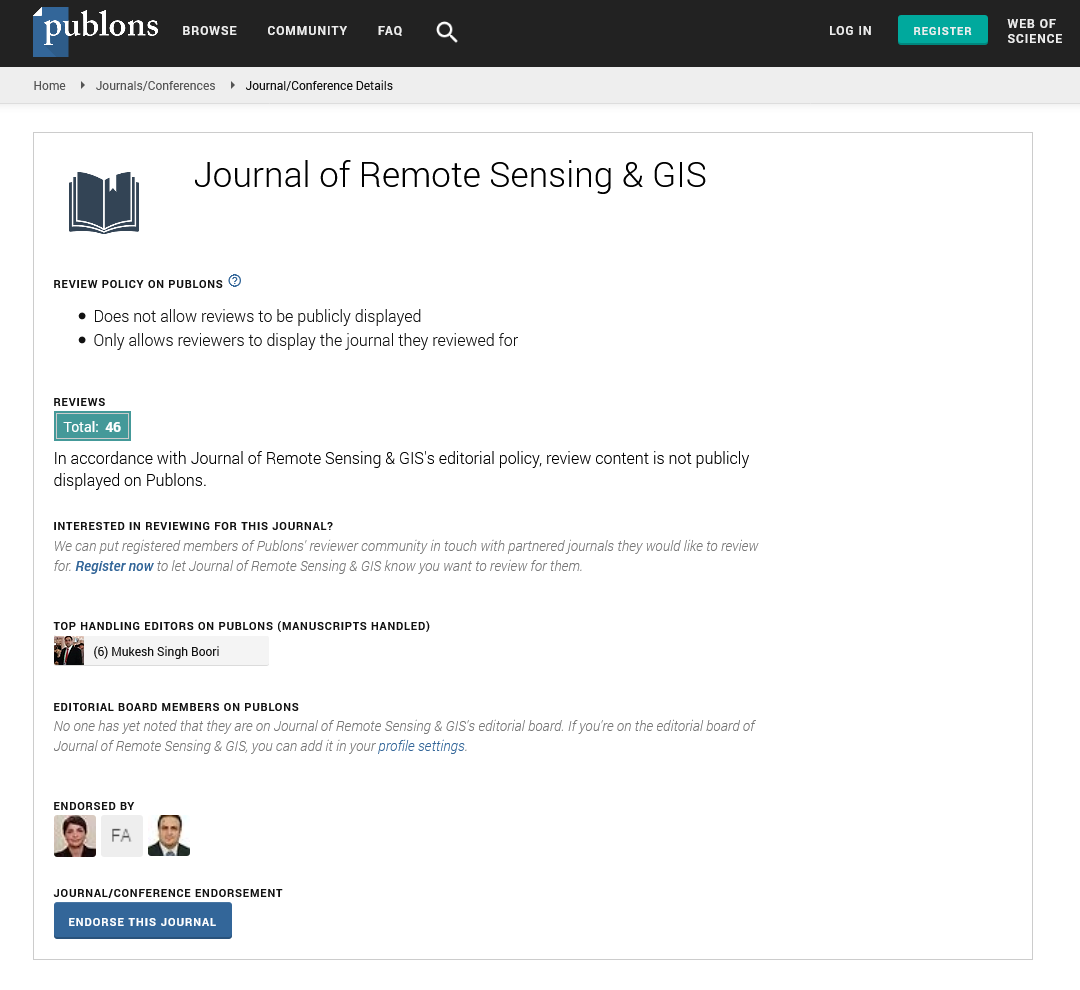Indexed In
- Open J Gate
- RefSeek
- Hamdard University
- EBSCO A-Z
- OCLC- WorldCat
- Publons
- International Scientific Indexing
- Euro Pub
- Google Scholar
Useful Links
Share This Page
Journal Flyer

Open Access Journals
- Agri and Aquaculture
- Biochemistry
- Bioinformatics & Systems Biology
- Business & Management
- Chemistry
- Clinical Sciences
- Engineering
- Food & Nutrition
- General Science
- Genetics & Molecular Biology
- Immunology & Microbiology
- Medical Sciences
- Neuroscience & Psychology
- Nursing & Health Care
- Pharmaceutical Sciences
Deep learning based on U-Net architectures for lithological classification using multi-sensor data
4th International Conference on GIS and Remote Sensing
September 27-28, 2018 | Berlin, Germany
Yuanze Chen and Melanie Brandmeier
Technical University of Munich, Germany
Esri Deutschland GmbH, Germany
Scientific Tracks Abstracts: J Remote Sensing & GIS
Abstract:
Deep learning has been used successfully in computer vision problems, e.g. image classification, semantic segmentation and so on. We use deep learning in conjunction with ArcGIS to implement a model with advanced convolutional neural networks (CNN) for lithological mapping in the Mount Isa region (Australia). The area is ideal as there is only sparse vegetation and besides freely available Sentinel-2 and ASTER data, several geophysical datasets (radiometric data and magnetometry) are available from exploration campaigns. By fusing the data and thus covering a wide spectral range as well as other geophysical properties of rocks, we aim at significantly improving classification accuracies. We developed an end-to-end deep learning model inspired by the family of U-Net architectures, which was especially designed to effectively solve semantic segmentation problems in computer vision similar to lithological classification. We spatially resampled and fused multi-sensor remote sensing data with different bands and geophysical data into an image cube as input for our model. The model classifies each pixel of multiband imagery into different types of rocks according to a defined probability threshold. The connection between ArcGIS and the deep learning libraries was achieved by using the Python API for ArcGIS and implementing the workflow into Jupyter Notebooks. Preliminary results based on the Sentinel-2 bands alone are very promising with accuracies of around 60%. By including geophysical data and ASTER spectral bands that perfectly capture major absorption features of clay minerals and mafic minerals such as pyroxenes and carbonates, we should be able to improve significantly.
Biography :
Yuanze Chen has beening pursuing Master’s Degree in Computational Science and Engineering at the Department of Informatics, Technical University of Munich, Germany, since 2016. He is currently working on his Master’s thesis in collaboration with Esri. His research concerns, remote sensing image processing based on deep learning methods.
E-mail: y.chen@esri.de


